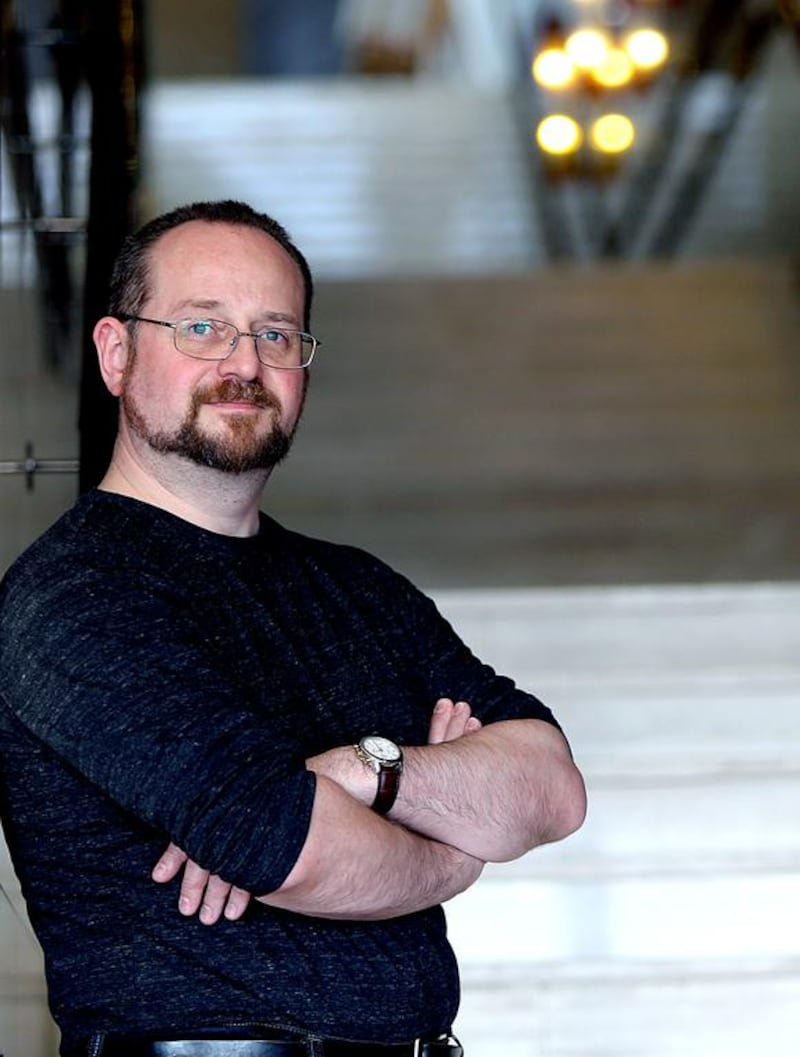Success brings its own share of problems. Where at one time Stuart MacBride struggled to get published, the popular Scottish crime novelist now worries about whether each new book will continue his streak of landing at the top of the British book charts.
Fortunately, his anguish is over for another year, after his latest release, The Missing and the Dead, became his fifth-consecutive chart topper.
“We Scots have this thing about not talking above our station – but I have to admit there is some sense of relief,” he says.
“You wonder with each new one whether it would be this book that won’t do that. I think it comes from that horrible feeling of letting everyone down.”
The 46-year-old author was in Dubai over the weekend to take part in the Emirates Airline Festival of Literature, where he discussed his acclaimed mystery series featuring the laconic detective sergeant Logan McRae.
Since the first instalment, Cold Granite, which was published in 2005, each tale, set in the northern Scottish city of Aberdeen, has been defined by gritty urbanism, tightly coiled plots and McRae's dark humour.
MacBride's fans are loyal, but he admits he was asking a lot of them with The Missing and the Dead, the 11th entry in the series.
For one thing, the normal setting of the granite city of Aberdeen was switched to the countryside, where the daily police action includes chasing vandals or rounding up an escaped farm animal. Even worse, MacRae has been shunted to a desk job in the office and is dealing with paperwork rather than being on the streets.
However, when the body of a missing girl washes up on the shore, the tale takes a decidedly darker turn.
MacBride says moving MacRae to a rural part of Aberdeenshire, under the guise of a career “developmental opportunity”, wasn’t simply intended to refresh the series.
After the violence and thrills of the previous 10 novels, he felt a stint in the villages would help to keep MacRae sane and believable.
“One of the biggest concerns I had of late was all the horrible things I [have] done to him,” he says. “It was really getting to the point where he would have to resign because there was no way he could be a police officer considering the horrible things I made him go through.
"That's the good thing about the change of pace with The Missing and the Dead. He doesn't get shot at this time around, but there are enough things going on that make him not have a great time."
The new setting also required MacBride to do some legwork of his own. As well as the multi-thread plots and terse writing style, the MacRae novels owe much of their appeal to the realistic police work, which is the fruit of the author’s painstaking research.
After deciding MacRae would be upping sticks and heading to the countryside, MacBride spent time with rural police officers to get a sense of what life is like on the pastoral front line.
“There is a big difference between a plain-clothes officer and someone in uniform,” he says. “The way you react and, particularly, in the way the public react to you.
“I spent several shifts with them, including days and nights and even went on drug raids. What I found from all the research I did, is that if anyone spends a day with these officers – whether it is the country or city – and see what they had to go through day in and day out, the attitude to the police would be completely different.”
That said, MacBride says there are elements to his work best not experienced. With the MacRae novels using real-life Aberdeen locations, one of the unintended effects that the series has had is readers adding his home city to their Scottish travel itineraries, and seeking out the scenes of the crimes.
But MacBride says there are reasons the alleyways and notorious locations described in his novels are not in any guide book.
“German tourists, for some reason, they email to say, ‘We are coming to Aberdeen to see all the places you talk about in your books’,” he says.
“I quickly reply and say, ‘Don’t’. When I say that place is dodgy, that means do not, under any circumstances, go there with your big camera.”
MacBride says he is already working on the next MacRae novel, due to be released next year, and while he won’t divulge any details about the case, he is more than happy to reassure readers that the tale will have its fair share of darkness – after all, it is the Scottish way.
“We trace our roots to Robert Louis Stevenson and Jekyll & Hyde, while south of the border [in England] a lot of the mystery novels goes back to Agatha Christie,” he says. “There is definitely a noir element to Scottish crime writing.”
• The Missing and the Dead (Harper Collins) is out now
[ sasaeed@thenational.ae ]






